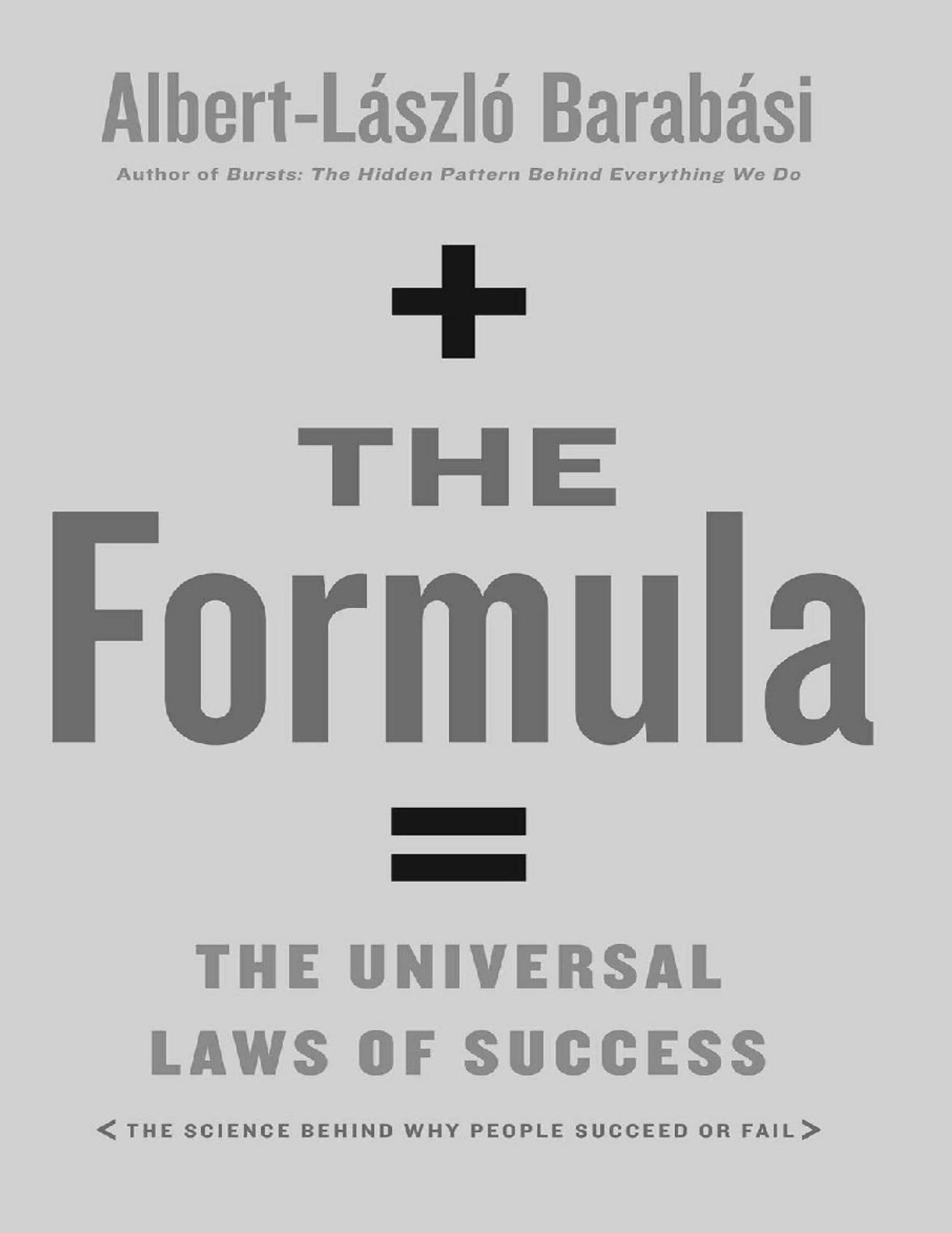The Formula: The Universal Laws of Success by Albert-László Barabási

Author:Albert-László Barabási [Barabási, Albert-László]
Language: eng
Format: epub, pdf
Publisher: Little, Brown and Company
Published: 2018-11-06T00:00:00+00:00
Social influence is essential for human survival. It’s probably what kept us from eating the poisonous mushrooms again and again, or getting too friendly with a tiger. For good reason, our judgments are cued by the views and experiences of those in our social orbit. We use our peers’ opinions to evaluate everything from brands of ice cream to works of art. If a product is well liked, we assume it’s superior. If it’s disliked, we assume it stinks. Popularity breeds popularity, just as success breeds success.
But the MusicLab’s most fascinating discovery emerges from one of the experiment’s more peculiar findings: in rare cases, exceptional fitness can defy social influence. Indeed, the control group’s favorite—a song called “She Said,” by Parker Theory—made a remarkable comeback. The teenagers faced with an inverted chart saw it at the bottom initially, but then its download numbers crept up. Soon after the billboard was inverted, “She Said” began a slow but steady climb from the lowest rung on the ladder. With time, preferential attachment sent it scurrying toward the top. Like a “pulled up by the bootstraps” fable, despite being the most penalized contender, it got back on track in the race. “She Said” shows how strong performance can recover from adverse social influence and rise in triumph, as predictably buoyant as oil floating on vinegar.
The recovery of “She Said” tells us that preferential attachment, the engine that drives the “success breeds success” dynamic encountered in the previous chapter, does not act in isolation when it comes to success. It works hand in hand with a product’s fitness. “She Said” is an example of the Third Law of Success:
Previous success × fitness = future success.
Fitness and the rich-get-richer phenomenon don’t clash but are entangled, working together to influence our choices and affect our outcomes. Crowds can push the merely good to unearned fame, but they’ll rarely get wholeheartedly behind the terrible. A false perception of popularity can boost a bad song, but it will never become a collective favorite. And when performance and preferential attachment harmonize, as they did in the case of “She Said,” they create the perfect storm for success.
Download
The Formula: The Universal Laws of Success by Albert-László Barabási.pdf
This site does not store any files on its server. We only index and link to content provided by other sites. Please contact the content providers to delete copyright contents if any and email us, we'll remove relevant links or contents immediately.
Rewire Your Anxious Brain by Catherine M. Pittman(17581)
Talking to Strangers by Malcolm Gladwell(11861)
The Art of Thinking Clearly by Rolf Dobelli(8836)
Mindhunter: Inside the FBI's Elite Serial Crime Unit by John E. Douglas & Mark Olshaker(7827)
Becoming Supernatural by Dr. Joe Dispenza(7099)
Change Your Questions, Change Your Life by Marilee Adams(6636)
Nudge - Improving Decisions about Health, Wealth, and Happiness by Thaler Sunstein(6629)
The Road Less Traveled by M. Scott Peck(6626)
The Lost Art of Listening by Michael P. Nichols(6462)
Enlightenment Now: The Case for Reason, Science, Humanism, and Progress by Steven Pinker(6402)
Win Bigly by Scott Adams(6306)
Mastermind: How to Think Like Sherlock Holmes by Maria Konnikova(6224)
The Way of Zen by Alan W. Watts(5787)
Daring Greatly by Brene Brown(5636)
Grit by Angela Duckworth(4728)
Big Magic: Creative Living Beyond Fear by Elizabeth Gilbert(4717)
Men In Love by Nancy Friday(4314)
Flow by Mihaly Csikszentmihalyi(4047)
The Four Tendencies by Gretchen Rubin(4014)
